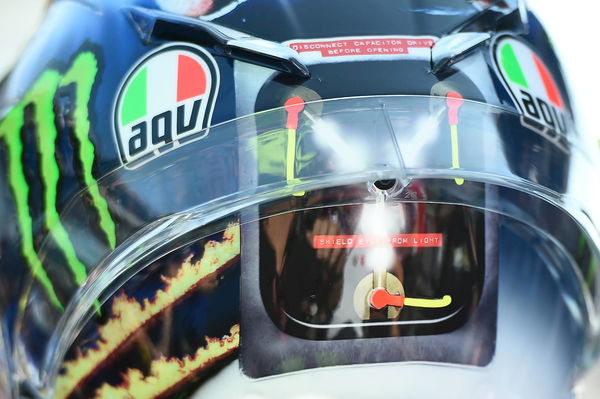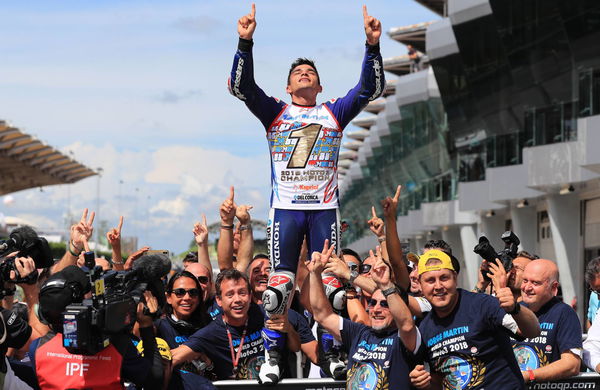MotoGP rule changes: Data, electronics, fuel, helmet, fines
The Grand Prix Commission has agreed the following MotoGP rule changes during a meeting at Sepang on November 3…

Technical Regulations Effective Season 2019
Data Analysis – MotoGP Class
The Technical Director has been granted authority to download data directly from the ECU to the “Official PC” for the purpose of verifying that it has not been modified from its original recording. Once it is established that the data complies with the FIM regulations it will be deleted from the Official PC.
ECU and Connections – MotoGP Class
In addition to the official ECU and IMU teams are now restricted to only using the official unified CAN decoupler which may also not be modified or have additions.
The unified Can decoupler is categorised as a “Free Device”
Ambient Fuel Temperature – MotoGP Class
The lead time between the announcement of the official ambient temperature and the start of the race has been increased from 60 to 75 minutes. This is to give teams more time to complete the fuelling process.
Helmets
The Commission approved the new FIM helmet standard established by the FIM for all circuit racing disciplines. This means that there will now be a single, enhanced standard for helmets, replacing the various international standards used before (ECE, Snell and JIS).
Helmet homologation tests are ongoing with some manufacturers having already concluded the tests and some planned within the next weeks. It is the intention of the FIM to publish by the Valencia GP a list of the helmets manufacturers that have been approved through the FIM Racing Homologation Programme and of those which are working to achieve this.
(More details on the helmet homologation below).
Brake Components
More detailed specifications for the materials used for brake hose connections and brake master cylinders were approved.
Disciplinary Matters - Effective Season 2019
Speeding in Pit Lane
Currently there is a standard fine of €200 for exceeding the pit lane speed limit.
In future the FIM MotoGP Stewards will have the possibility to impose larger financial penalties for repeat offences during the same event. The Stewards will also have the right to impose higher fines or further penalties for excessive speed or for multiple repeat offences during the season.
FIM homologated helmets mandatory in Grand Prix as of 2019
Following the decision of the last Grand Prix Commission, who gathered in Sepang (MAL) on November 3 2018, the use of FIM homologated helmets will be mandatory for all riders accessing FIM Grand Prix competitions starting from next year.
The FIM homologation will be thus required for the helmets in place of the international standards (ECE, Snell and JIS) to which the FIM referred solely to until now.
Relatively to the international standards previously referred to, the FIM homologated helmets have undergone an enhanced and more complete evaluation of their performance; this includes an assessment of the protection against low, medium and high velocity linear impacts, oblique impacts and penetration.
The FIM Homologation Label will uniquely identify each helmet that access FIM Grand Prix competitions and will be an efficient tracking tool for Technical Stewards. By scanning the label QR code, information relative to the helmet features and the validity of the homologation will be accessible.
A link to the tradename webpage will be also available for redirection to the advertising and the web services offered by each single manufacturer. Further, the 3D FIM Hologram will add a high security value to the label in order to guarantee maximum trust in the homologation.
‘This is a true example of technology at the service of sport and safety, we are very proud that this Programme’s launch is under way and that the industry and the whole racing community have welcomed these changes’ explained Fabio Muner, FIM Sports Director.
It is the intention of the FIM to publish by the Valencia GP a list of the helmets manufacturers that have been approved through the FIM Racing Homologation Programme and of those which are working to achieve this.











